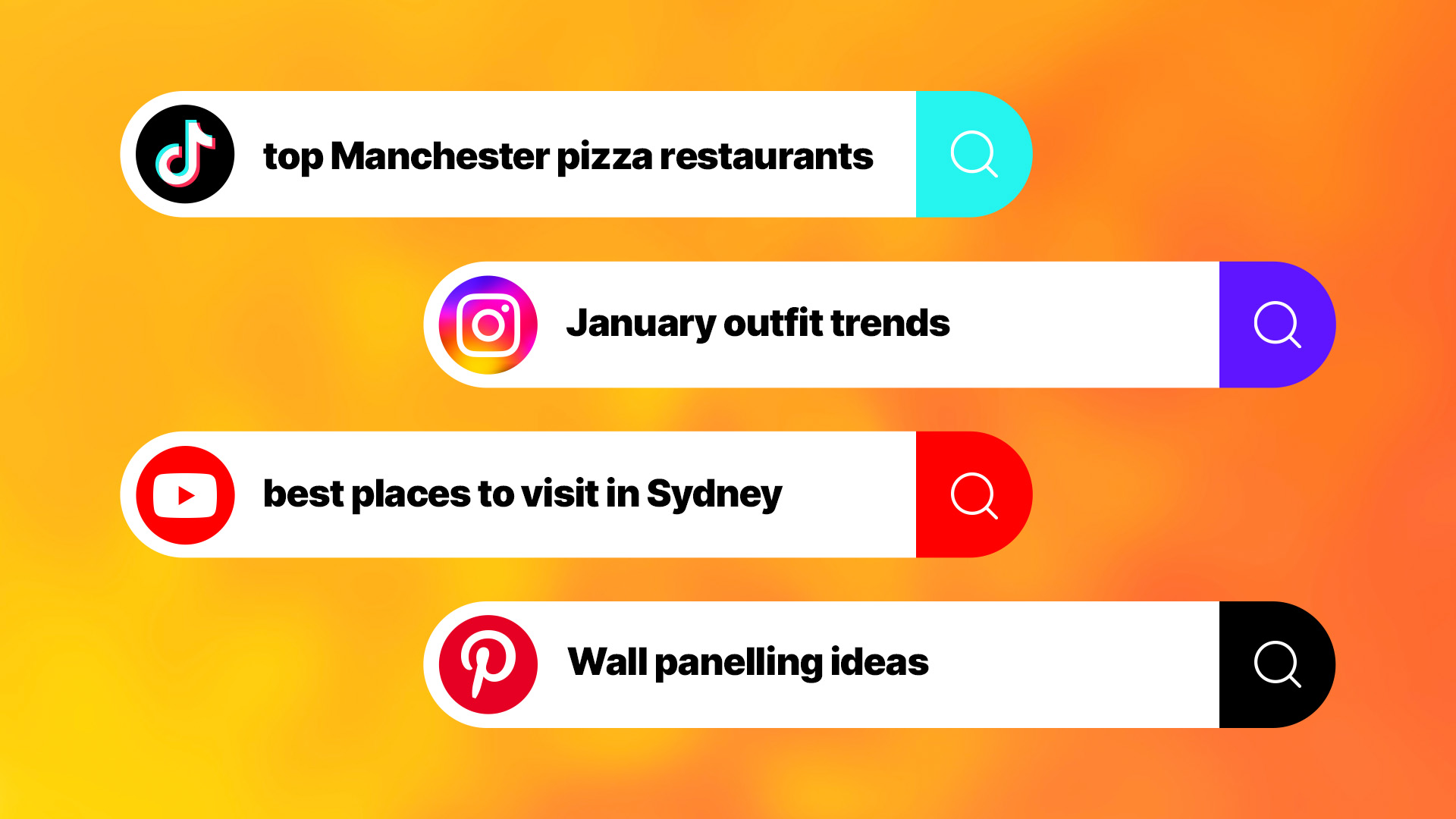
2025: The Year Social Media Replaces Search Engines

Last year, you probably noticed something different about Instagram during a regular
scrolling session. There was a lot of buzz around Meta’s decision to add an AI search bar to the platform, and begin testing across Facebook & Whatsapp - reflecting the fact that 60% of gen z prefer searching on social media as opposed to traditional search engines like Google.
What we’re seeing is suggesting that this trend is only going to accelerate over the coming months, to the point that 2025 might well be the year that social media truly replaces search engines as our go-to choice for discovering new information.
This should come as no surprise. It’s being driven by things we all know to be true about the online behaviour of modern consumers and with the brands we work with: Video content is driving more shares on social media than text and images combined, we’re increasingly looking to influencers for inspiration and guidance, and consumers are becoming ever-more aware that traditional search engines are more likely to throw up paid ads before presenting the information we’re actually looking for.
For brands looking to achieve relevance and visibility online, the repercussions of this shift will be huge. Marketers will need to start thinking about social media with the same level of strategic priority that SEO has enjoyed for years, and the advantages for those which get it right will be enormous.
Ultimately, what social media search offers brands is a chance to be discovered organically, rather than actively searched-for. That’s because another long-term trend we’re seeing on socials is that people are far more likely to consume content via their For-You page rather than their ‘following’ feed. In combination, these two trends mean that the sheer number of followers a brand has on social platforms will be less relevant, as users stick to For-You pages that become ever-more sophisticated thanks to the increasing accuracy of algorithms powered by AI.
So instead of aiming for a high follower count, brands will be better served by prioritising organic content that earns a place on the For-You page as a way of optimising visibility and engagement. So by focusing on creating relevant and timely content the more engagement you will get. The more engagement you get, the more the algorithm pushes it into the For-You page. The more you appear on audiences’ For-You pages, the more visibility and additional engagement you will get.
#NoHashtag
At this point, it might be tempting to consider ‘hacking’ the algorithm with one of the oldest tools in the social media playbook: Hashtags. But interestingly, we’re seeing evidence that algorithms are becoming so effective at delivering relevant content to users that even hashtags are becoming less important for visibility than the content itself. One influencer we work with in the fashion and lifestyle space has developed a habit of keeping his captions particularly short. Rather than adding hashtags, he carefully selects relevant keywords and adds them to the end of his caption. Clearly, he feels this helps push his content to the relevant audiences for stronger reach and engagement than currently trending hashtags.
We’re used to seeing this done with ‘trending’ hashtags which are time-specific but there’s already reason to believe that this introduction of AI will see the end of hashtags too. People and brands will increasingly use keywords to make their captions much more specific and match consumers’ AI searches more effectively.
So, as feeds become ever-more personalised, brands will need to consider how they optimise keywords within content that are specific to their brand, and to what their audience are most likely to search. This goes back to my point on discovery. On social media, every user’s feed is different and unique to them. It’s constantly providing them with information that the algorithm knows is relevant, based on previous behaviour. In contrast, search engines are predicated on the consumer knowing what they want before they find it.
So not only are social media platforms making it easier for brands to be discovered, if they are creating engaging content of course, but they are also making it easier for brands to achieve sales. Encapsulated in the rapid growth of TikTok Shop - a smoothly integrated way to buy content directly through the TikTok app, often linked through viral posts that appear in the For-You pages. This has offered up a fast and effective way to promote sales through TikTok, and it seems inevitable that Instagram will integrate similar functionality very soon.
The continuous improvements in social media algorithms leading to more personalised feeds have shaped how we work with our clients to target the right audiences. For us, consideration of audience interests sits above demographic segmentation when working with brands to create the perfect influencer and/or content strategy.
So, for brands looking to be discovered, or increase desirability and revenue in 2025, the role of social media and the use of influencers should be given very serious consideration - as it does more than just deliver engagement.















